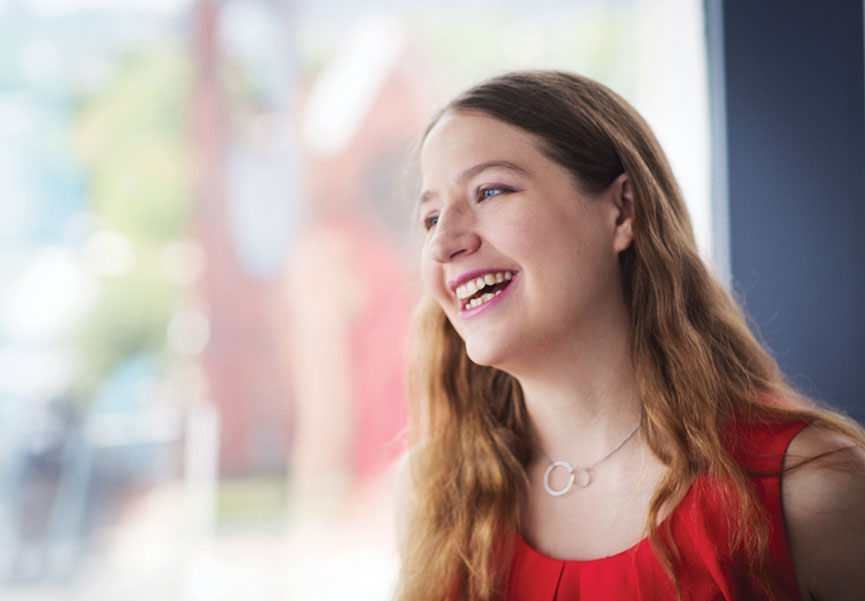
Catherine Havasi ’03, SM ’04, has always been fascinated by how humans learn language, but it wasn’t until her first year at MIT that she discovered her true passion: helping computers understand language more like people and less like machines.
Now, 15 years later, Havasi runs ConceptNet, one of the largest common-sense knowledge bases in the world, and she is the cofounder and chief strategy officer of Luminoso, a startup developing “humanlike” AI.
Havasi’s journey began in the MIT Media Lab, just as internet search engines were taking off.
“One of the things we were thinking about to make search better was to make computers understand what people think when they’re making a search,” Havasi explains. “The basic idea was, if we give computers information that we know, they’ll figure out our goals, and then they’ll be able to search smarter.”
Havasi, Marvin Minsky, and Push Singh ’98, MEng ’98, PhD ’05, initiated the crowdsourced repository of common-sense knowledge for computers that became ConceptNet. Havasi saw ConceptNet as a starting point: in 2010, soon after she earned a PhD in computer science at Brandeis, she started Luminoso with the goal of building common-sense AI that uses natural-language processing to help companies improve their customer service. Her husband, Jason Alonso ’04, is the company’s cofounder and chief technology officer. They live in Cambridge with their two-year-old son, Matthew.
Luminoso’s main AI product works by sifting through customer service tickets and calls, looking for patterns that indicate how a company can improve customer satisfaction. In one instance, Luminoso used a car company’s customer complaints about smells and dampness to pinpoint a mechanical problem in the air-conditioning.
“Basically, we’re trying to democratize machine learning for the enterprise such that you don’t have to be Google, you don’t have to be Amazon, and you don’t have to have a PhD in machine learning to be able to get something out of this data,” Havasi explains.
As the company’s chief strategy officer, Havasi spends her time figuring out how new technologies can be incorporated into Luminoso’s AI and how the company’s platform can be used to solve business problems across different markets.
“I love emerging technology,” she says. “I love making it, I love working with it, but I don’t love it sitting on a shelf and not making a difference in the world.”
Keep Reading
Most Popular
Large language models can do jaw-dropping things. But nobody knows exactly why.
And that's a problem. Figuring it out is one of the biggest scientific puzzles of our time and a crucial step towards controlling more powerful future models.
How scientists traced a mysterious covid case back to six toilets
When wastewater surveillance turns into a hunt for a single infected individual, the ethics get tricky.
The problem with plug-in hybrids? Their drivers.
Plug-in hybrids are often sold as a transition to EVs, but new data from Europe shows we’re still underestimating the emissions they produce.
Stay connected
Get the latest updates from
MIT Technology Review
Discover special offers, top stories, upcoming events, and more.